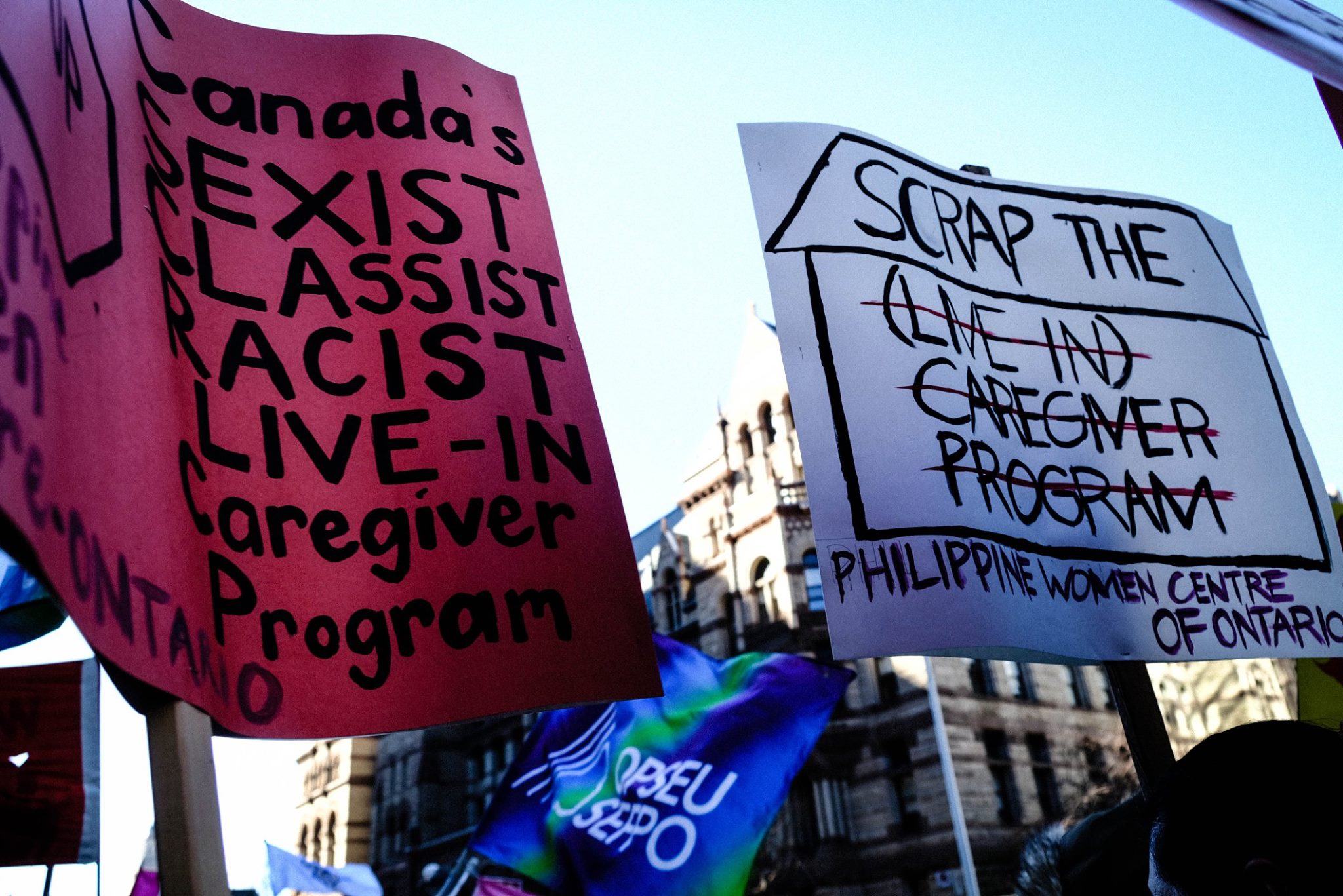by the Congress of Progressive Filipino Canadians (CPFC)
How can we really end the cycle of exploitation of “migrant care workers
Canada’s Temporary Foreign Worker’s Program (TFWP) has long existed as a vehicle to recruit and cheapen transnational workers’ labour. The particular category of caregiver/domestic work schemes currently under the TFPW, from the early West Indian Domestic Scheme in the 1960s, to the Federal Domestic Movement in the 1980s, the Live-in Caregiver program in the 1990s, and now the home childcare and home care support programs, have all been founded on the ability to recruit cheapened labour of women from the Global South (historically from the Caribbean and the Philippines) to enable middle and upper class Canadians access to private home care and childcare. This is care that is overall inaccessible and denied for the majority of families in Canada in the first place. For over 50 years these labour programs have existed and have perpetuated and entrenched a systemically racist, anti woman and anti worker labour scheme within the fabric of Canadian society.
These caregiver/ domestic work programs at the core exist to exploit workers. After years of campaigning against these programs, we know very well that new reports of abuse are what most of women are subjected to under the program. These programs systemically give the power to dictate the rules and regulations to Canadian employers in their own households. A regular work contract between employer and employee to work 8 hours a day on a minimum wage is largely thrown out the window as the constant fear of deportation is always a looming existence for these workers. Additionally, the possibility to obtain permanent status (PR) leaves many workers at the whims and mercy of abusive employers in order to fulfill the requirements for PR. Racism and violence against women is a daily reality for many women under these work conditions.
The COVID-19 pandemic has only made these experiences more imminent. Unpaid work, isolation, forced to live with their employers, the denial of privacy, dignity and in constant fear–are all amplified under the current pandemic. These are work conditions that Canadian citizens would only take in desperation. Yet this is a federally implemented labour program that normalizes exploitive and abusive working conditions for workers from the Global South. Under Canada’s current immigration and labour policies and regulations, any reforms to this program to make it more humane will never be accepted under the Canadian state’s goal to profit from cheap labour and undermine and divide worker’s rights and progress in Canada (and inevitably around the world).
The cruelness of Canada’s Temporary Foreign Workers Program must be placed in the context of our fight for women’s liberation, and social progress. Alternately, progressive policies on immigration and labour that truly espouse a multicultural vision must break away from these backward labour programs and policies that continue to exploit poor workers and women from other countries.
We must confront the existence of Canada’s Temporary Foreign Workers Program for its specific role in the undermining of wages for all workers in Canada, promoting workers’ flexible and temporary status, and normalizing systemic abuse of workers from the Global South. This is a program we wholly denounce in any form. This means the abolishing of this program in favour of concrete socialist programs towards genuine immigration, settlement and integration. The intersection of “migrant work”, domestic work, and immigration is a key point of struggle for us as socialists. For us in the Congress of Progressive Filipino Canadians, we continue our resolve on our path towards integration as workers, for workers to fight against Canada’s colonialism and capitalist exploitation as part of a global and national movement towards a socialist society.
##
